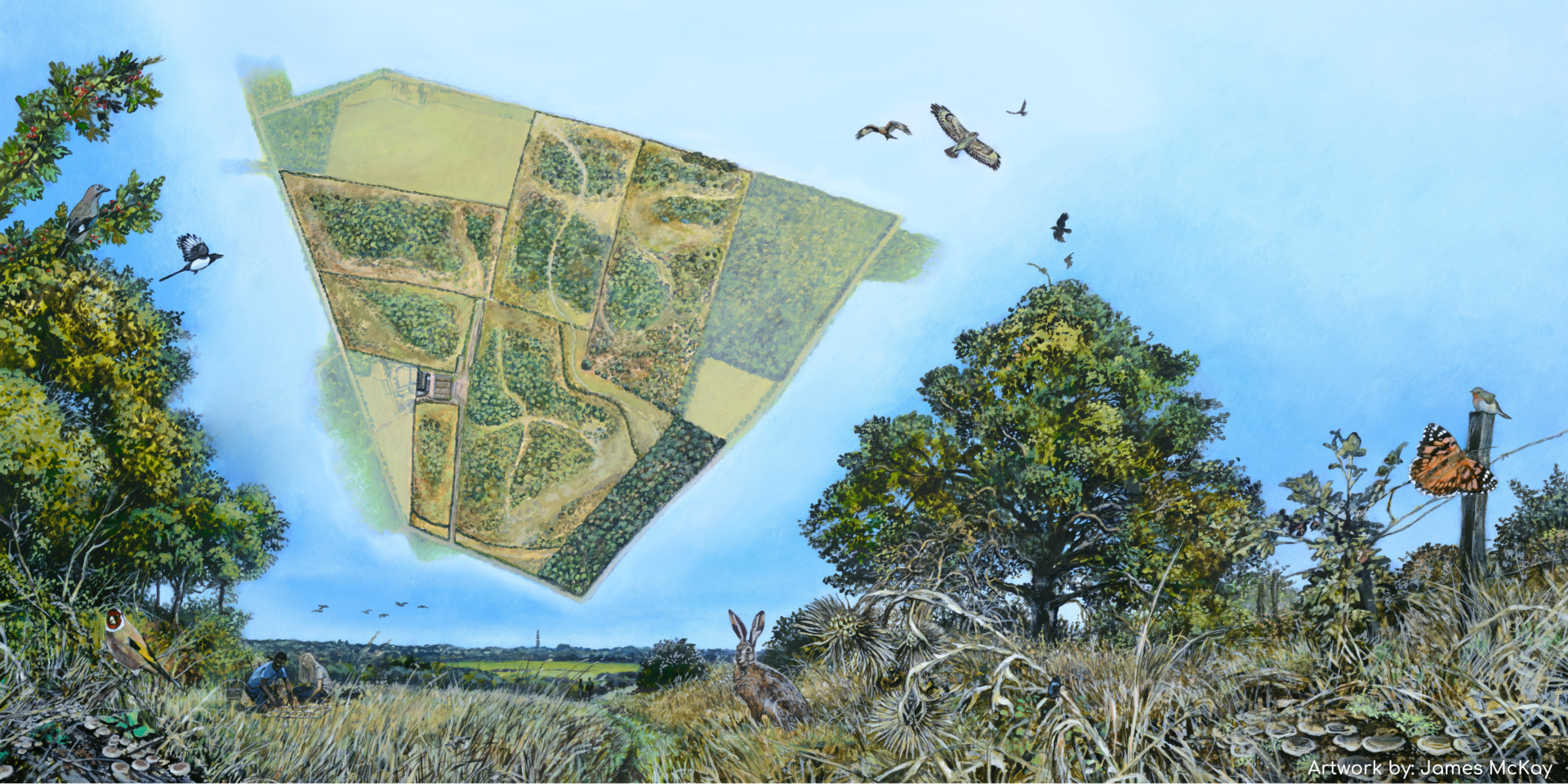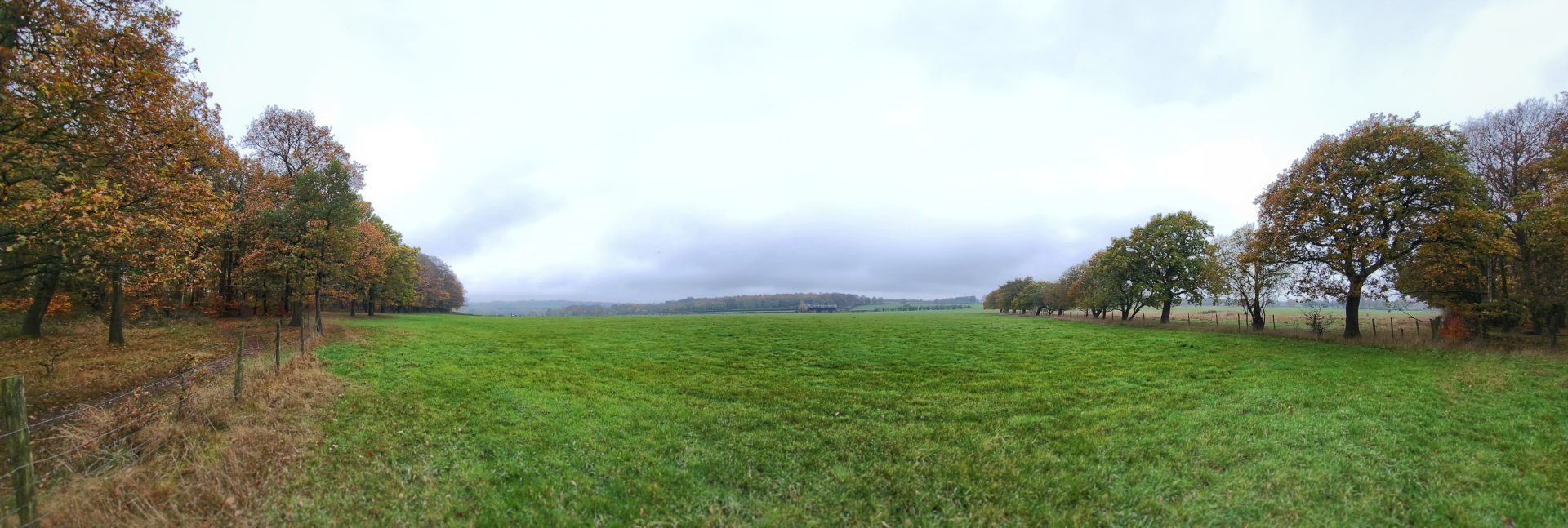Gair Wood

As one of the most significant woodland creation projects in the North of England, tree planting at Gair Wood will increase biodiversity and public access, as well as providing research, teaching, and social opportunities and capturing carbon as part of the University of Leeds Climate Plan.
Gair Wood contributes to the White Rose Forest, the community forest for North and West Yorkshire, whose vision is to create a sustainable and well wooded landscape across the region, benefitting local people, the economy and wildlife. It is named after University Secretary Roger Gair, who retired in 2021 after more than 40 years at the University of Leeds. Roger planted the first tree at Gair Wood in December 2022.
The woodland has been developed by the University of Leeds, United Bank of Carbon and representatives from the White Rose Forest working in conjunction with Leeds City Council, Defra, and the Forestry Commission. Funding from the White Rose Forest, United Bank of Carbon and the Forestry Commission supports the project.
The new woodland sees over 60 thousand regionally appropriate broadleaved species such as oak, hazel, and willow planted across a 36-hectare site. Around 15 hectares of new tree planting are added to 4 hectares of existing tree cover, with the remaining space a mix of scrubland, open spaces, and unplanted land near the neighbouring woodland from which local seeds are expected to establish. This transforms grassland into a mosaic of habitats, increasing biodiversity.

Local Community, Research, and Teaching
Gair Wood is neighboured by Golden Acre Park and will link existing public footpaths to permissive rights of way through the site, as well as providing biodiversity benefits and opportunities for the local community to engage with nature.
Acting as a Living Laboratory, the creation of Gair Wood allows the University to explore the real-time impacts of tree planting as a nature-based solution to climate change. Researchers with a wide range of expertise are coming together to observe changes on site as this new woodland evolves, including the composition of the soil, species of wildlife present and local air quality. An initial ecological assessment and soil sampling at the woodland were completed in 2022. Undergraduate and postgraduate students across the University are able to undertake local fieldtrips and conduct research projects on the site and have been an important part of site monitoring since planting concluded in 2023.
University of Leeds Climate Plan
Over time, the carbon captured by Gair Wood will contribute towards the University’s target of reaching net zero greenhouse gas emissions by balancing residual emissions that are difficult to remove entirely. Balancing emissions is just one element of the University’s pathway to net zero, as set out in the University Climate Plan, alongside substantial reductions in the amount of greenhouse gases the University produces.
